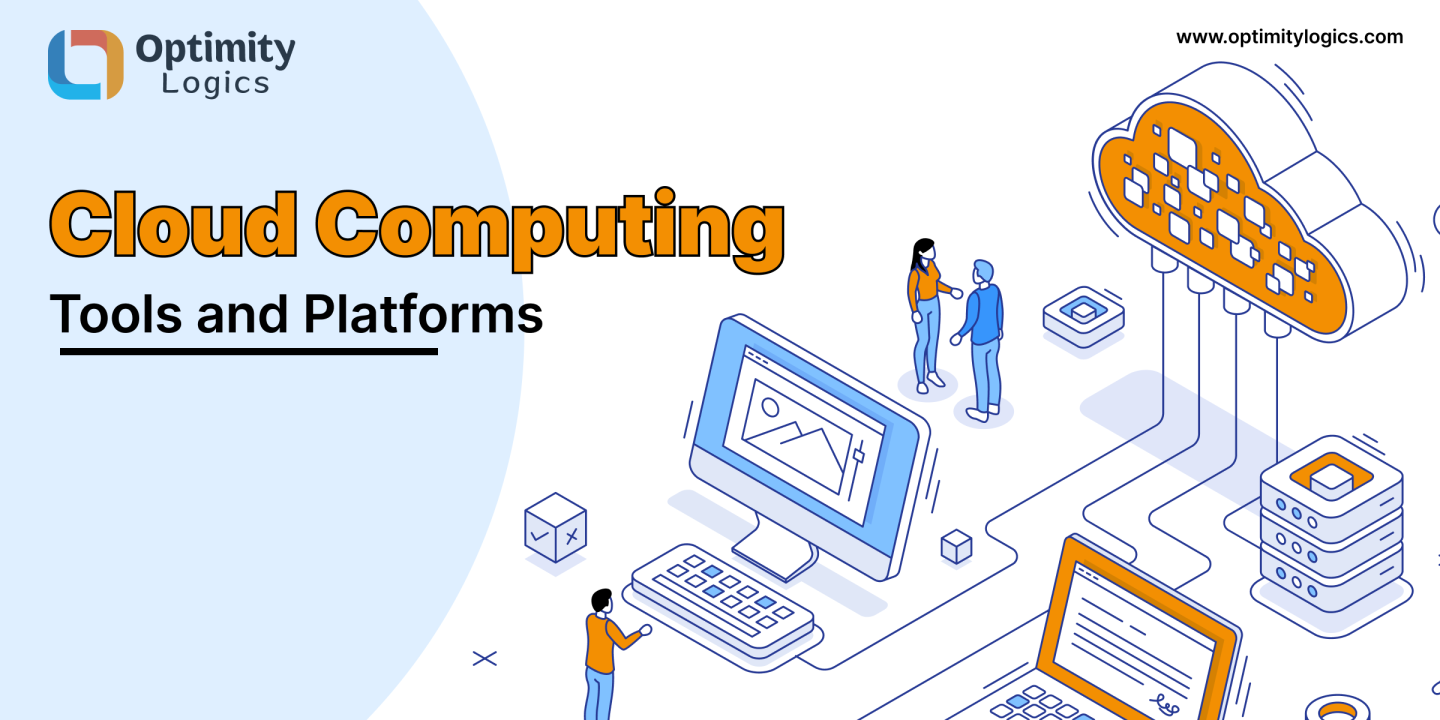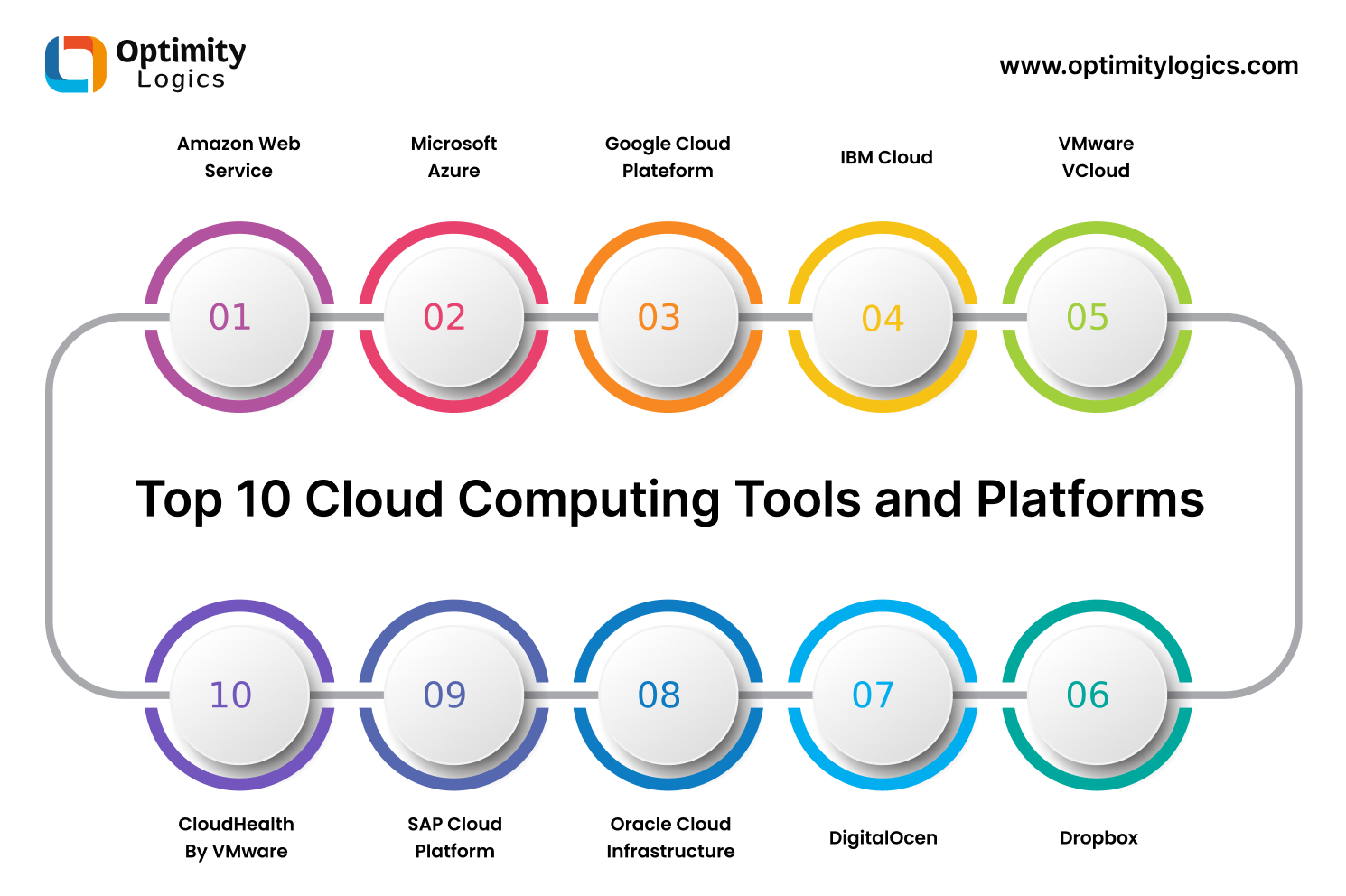
Cloud computing has revolutionized the way businesses manage data, applications, and computing power. With a diverse range of cloud tools available, organizations can enhance efficiency, scale seamlessly, and strengthen security.
Cloud computing technologies are essential for running a successful business, especially in today’s rapidly evolving digital landscape. Whether you aim to unlock endless opportunities for innovation, adapt to shifting market conditions, or accelerate software development, cloud computing tools make it all possible.
What Is Cloud Computing?
Cloud computing enables the delivery of computing services—such as processing power, storage, databases, software, and networking—via the internet. Also, It offers individuals and businesses on-demand access to resources, ensuring flexibility, scalability, and cost efficiency.
Operating through different models, including Platform as a Service (PaaS), Infrastructure as a Service (IaaS), and Software as a Service (SaaS), cloud computing is power by leading providers like Microsoft Azure, AWS, and Google Cloud.
These services enhance security, improve collaboration, and strengthen disaster recovery while significantly reducing IT infrastructure costs. As a result, cloud computing has become a cornerstone of modern businesses and innovative software solutions.
Types Of Cloud Computing
Here are the types of cloud computing driving innovation in the industry.
Infrastructure as a Service (IaaS)
Infrastructure as a Service (IaaS) is a cloud computing model that provides on-demand access to virtualized computing resources over the internet. So, It allows businesses to lease essential IT infrastructure—such as servers, storage, networking, and operating systems—on a flexible, pay-as-you-go basis, minimizing dependence on physical hardware.
Platform as a Service (PaaS)
Platform as a Service (PaaS) is a cloud computing model that delivers a comprehensive development and deployment environment in the cloud. As well as, It allows developers to build, test, and deploy applications efficiently without the complexity of managing underlying infrastructure. So, PaaS provides tools for database management, application hosting, and development frameworks, accelerating software development and enhancing collaboration.
Software as a Service (SaaS)
Software as a Service (SaaS) is a cloud computing model that delivers software applications over the internet on a subscription basis. Also, Users can access SaaS applications from any device with an internet connection, eliminating the need for installation or maintenance. So, SaaS providers manage updates, security, and infrastructure, allowing businesses to focus on their core operations. Common examples include customer relationship management (CRM) systems, productivity suites, and collaboration tools.
Top 10 Cloud Computing Tools and Platforms

Cloud computing has revolutionized business operations by providing scalable, cost-efficient, and flexible solutions for data storage, computing power, and application deployment. Additionally, Optmity Logics explore In this article, we highlight the top 10 cloud computing tools and platforms that are shaping the future of digital transformation.
1. Amazon Web Service
One of the top cloud platforms is Amazon Web Services (AWS), which provides a wide range of services like storage, machine learning, processing power, and security solutions. It is a popular option for companies of all sizes due to its scalability and worldwide infrastructure.
Example: Netflix leverages AWS to handle massive amounts of data and provide seamless streaming experiences to millions of users worldwide.
2. Microsoft Azure
A strong cloud ecosystem is offered by Microsoft Azure, which offers services including networking, AI, analytics, and virtual machines. It is extensively utilized by businesses that use Windows-based apps because of its smooth interaction with Microsoft products.
Example: BMW uses Microsoft Azure for predictive maintenance, optimizing vehicle performance using cloud-based AI analytics.
3. Google Cloud Plateform
Google Cloud Platform (GCP) offers big data analytics, AI-driven insights, and high-performance cloud computing. So, Its scalable infrastructure and sophisticated machine-learning techniques make it a formidable rival in the cloud industry.
Example: Spotify utilizes GCP for data analytics, ensuring personalized music recommendations for users.
4. IBM Cloud
IBM Cloud offers both public and private cloud solutions with a strong focus on AI, blockchain, and enterprise-grade security. Also, It is widely adopted by industries requiring secure and compliant cloud environments.
Example: American Airlines leverages IBM Cloud to modernize its passenger service systems and improve customer experience.
5. VMware vCloud
VMware vCloud offers multi-cloud and hybrid solutions that let companies run apps in various environments. So, Its enterprise-grade cloud management and virtualization features are well-known.
Example: Dell Technologies uses VMware vCloud for efficient data centre management and virtualization.
6. Dropbox
Dropbox is a popular cloud-based storage program made for collaboration, file sharing, and smooth device syncing. Because to its easy-to-use interface and security features, it is well-liked by both consumers and companies.
Example: National Geographic photographers use Dropbox to store and share high-resolution images across teams worldwide.
7. DigitalOcen
Scalable computing resources for application deployment and management are offered by the developer-friendly cloud platform DigitalOcean. Because of its affordability and ease of use, startups and small enterprises especially prefer it.
Example: GitLab relies on DigitalOcean’s infrastructure for continuous integration and DevOps automation.
8. Oracle Cloud Infrastructure
Oracle Cloud Infrastructure (OCI) provides enterprise apps, database administration, and high-performance computing. So, Businesses that depend on Oracle’s database and ERP solutions will find it ideal.
Example: Zoom uses Oracle Cloud Infrastructure to support its video conferencing services at scale.
9. SAP Cloud Platform
The SAP Cloud Platform is made for business applications and provides big data analytics, AI, IoT, and digital transformation solutions. Also, In sectors including manufacturing, retail, and finance, it is extensively utilized.
Example: Coca-Cola uses SAP Cloud to streamline its supply chain management and optimize operations.
10. CloudHealth by VMware
Last but not Least, VMware’s CloudHealth is a cloud management platform that helps companies improve governance, increase security, and cut costs across various cloud environments. Also, For businesses in charge of intricate cloud infrastructure management, it is an invaluable tool.
Example: Pinterest utilizes CloudHealth by VMware to track cloud spending and optimize resource allocation.
Final Thoughts
Choosing the right cloud computing platform depends on business needs, scalability, security, and budget. Also, These top 10 cloud platforms offer diverse capabilities, making cloud adoption more accessible and efficient. Whether you are a startup or an enterprise, leveraging cloud computing can boost innovation and competitiveness in the digital era.
Stay updated with Optimity Logics for more insights on cloud computing and technology trends!










